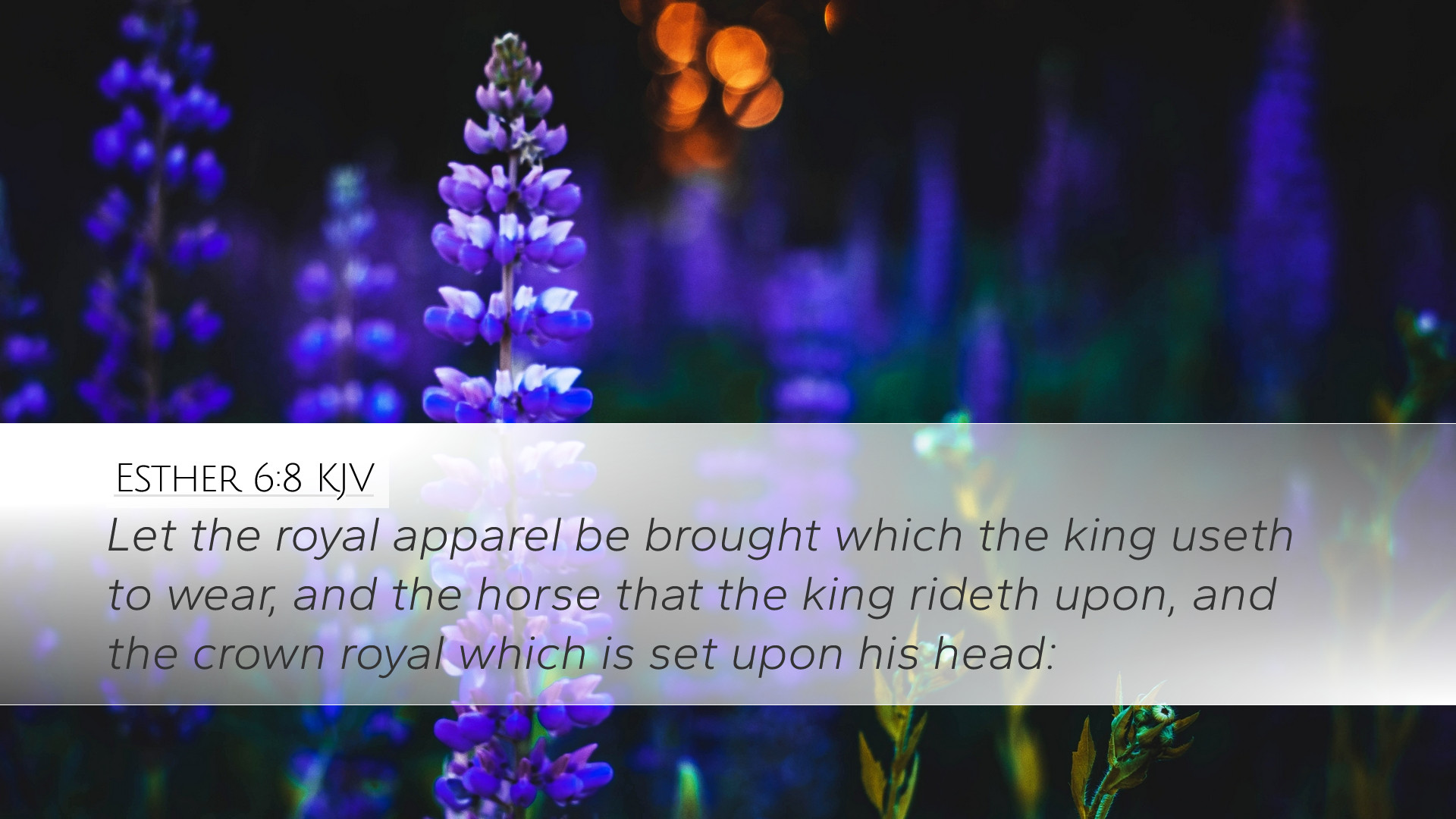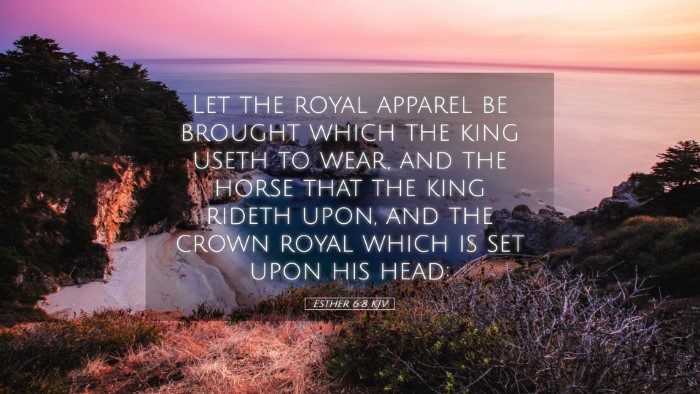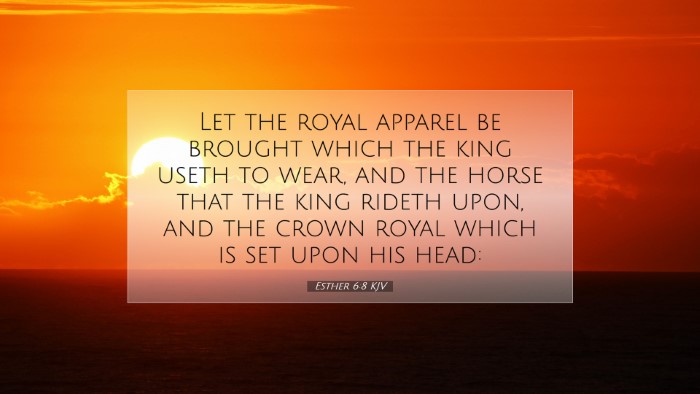Old Testament
Genesis Exodus Leviticus Numbers Deuteronomy Joshua Judges Ruth 1 Samuel 2 Samuel 1 Kings 2 Kings 1 Chronicles 2 Chronicles Ezra Nehemiah Esther Job Psalms Proverbs Ecclesiastes Song of Solomon Isaiah Jeremiah Lamentations Ezekiel Daniel Hosea Joel Amos Obadiah Jonah Micah Nahum Habakkuk Zephaniah Haggai Zechariah MalachiEsther 6:8
Esther 6:8 KJV
Let the royal apparel be brought which the king useth to wear, and the horse that the king rideth upon, and the crown royal which is set upon his head:
Esther 6:8 Bible Commentary
Commentary on Esther 6:8
Introduction
Esther 6:8 presents a pivotal moment in the unfolding narrative of Esther. In this verse, we see a significant shift in Haman's fortunes, as the king asks for a suggestion on how to honor a man he has just decided to reward. This moment encapsulates themes of pride, humility, justice, and divine providence.
Verse Analysis
Esther 6:8 reads, "Let a royal robe be brought which the king has worn, and the horse on which the king has ridden, and let the royal crown be set on his head."
The Context
Leading up to this verse, Haman had been plotting against Mordecai, seeking to elevate himself at Mordecai's expense. Ironically, the very moment he arrives to request Mordecai's execution is the moment he must instead prepare to honor him. This juxtaposition highlights Haman’s arrogance and the unexpected reversal that is central to the book of Esther.
The Symbolism of the Royal Robes
The royal robe that the king asks for symbolizes honor and status. As Matthew Henry notes, "Robes are a sign of dignity and authority." Haman is instructed to use the king’s own robe, which emphasizes that the honor bestowed upon Mordecai is not just superficial but reflects the king's own authority.
Royal Horse and Crown
The horse on which the king has ridden carries a special significance. Adam Clarke elucidates that a horse ridden by the king is a “vehicle of majesty, suggesting power and sovereignty.” Haman’s involvement with this symbol of royal authority further serves to underline the great reversal of his own plot while serving Mordecai, the very person he sought to destroy.
Haman’s Role
Haman’s obligation to fulfill this command from the king serves as a profound commentary on the dynamics of power. Albert Barnes states that "Haman was forced to serve the man he had wished to hang." This situation underscores the biblical principle that God is sovereign over the affairs of men and will often use the proud to serve the humble.
Theological Implications
This verse powerfully illustrates God’s justice and providence. The plan of Haman, rooted in pride and malice, leads to an outcome where God's chosen servant, Mordecai, receives honor instead. This reflects the principle of reversal found throughout Scripture – indeed, “the last shall be first, and the first last” (Matthew 20:16).
Application for Today
The commentary on Esther 6:8 resonates deeply for churches and leaders today. It embodies several important lessons:
- The Dangers of Pride: Haman’s pride leads to his downfall. Pastors and leaders should remain humble, acknowledging that their authority is derived from God.
- God's Sovereignty: The story illustrates that God’s providential care prevails in every situation, even when circumstances seem dire. Trust in God’s plan is crucial.
- Honor and Recognition: Mordecai’s elevation serves as a reminder to honor those who may be overlooked, bringing justice and recognition to those who stand for righteousness.
Conclusion
Esther 6:8 serves as a rich ground for reflection and teaching. It captures the essence of God’s sovereignty, illustrates the dire consequences of pride, and highlights the beauty of divine justice. As we consider these themes, let us aim to embody humility and trust in God’s perfect timing and justice, just as Mordecai did.


